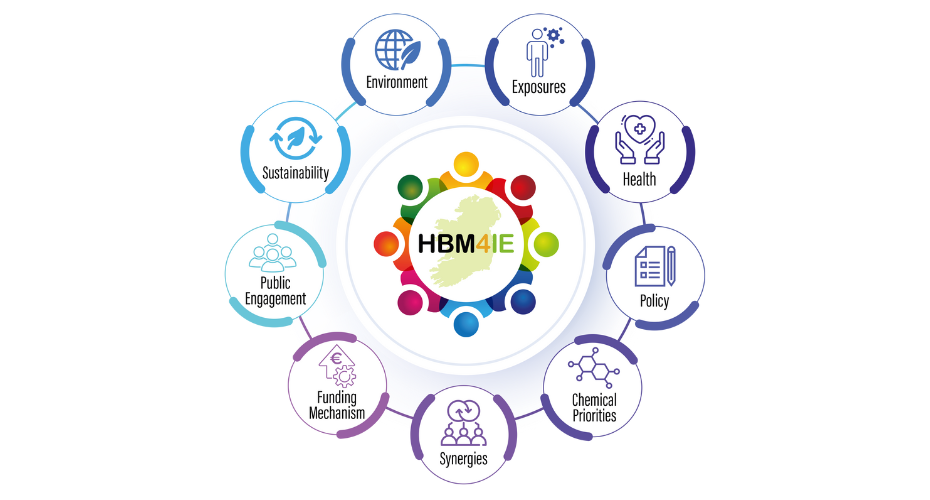HBM4IE: Human Biomonitoring for Ireland Environmental Chemical Exposure Study
 We are all exposed to a wide range of environmental chemicals in our daily lives through the air we breathe, the food we eat, the products we use, and the environments we live and work in. While many of these chemicals are present at low levels, growing evidence shows that long-term exposure to certain substances can adversely affect human health. Understanding the extent and sources of these exposures is essential for protecting public health and informing effective environmental policy.
We are all exposed to a wide range of environmental chemicals in our daily lives through the air we breathe, the food we eat, the products we use, and the environments we live and work in. While many of these chemicals are present at low levels, growing evidence shows that long-term exposure to certain substances can adversely affect human health. Understanding the extent and sources of these exposures is essential for protecting public health and informing effective environmental policy.
The HBM4IE project aims to assess the chemical exposure of the Irish adult population using human biomonitoring (HBM), a gold-standard method for measuring pollutants in biological samples such as blood, serum, and urine. Funded by the Environmental Protection Agency (EPA), this 4-year study supports Ireland’s contribution to EU-wide initiatives such as the Zero Pollution Action Plan and the Partnership for the Assessment of Risk from Chemicals (PARC). Through harmonised sampling protocols aligned with EU efforts, HBM4IE will evaluate exposures to emerging and legacy substances including phthalates, PFAS, metals, and pesticides. The project will generate robust, policy-relevant data to track progress toward environmental health goals, inform risk assessment, and guide targeted policy interventions to reduce harmful chemical exposures in Ireland.
In addition to chemical analyses, the project will explore qualitative insights on exposure sources, behavioural patterns, and public perceptions. By combining quantitative and qualitative approaches, HBM4IE will help identify exposure hotspots, inform communication strategies, and support evidence-based policymaking to protect human health and the environment.
HBM4IE builds on the work of the HBM4IRE feasibility study conducted in 2023, which provided foundational information and experience for implementing a national human biomonitoring programme in Ireland.
We are currently recruiting Irish adults aged 18 to 39 years — join us to participate and contribute to shaping a healthier, pollution-free future!
Participant token of appreciation: coffee mug, reusable eco-friendly bag, light lunch and One4all voucher.
